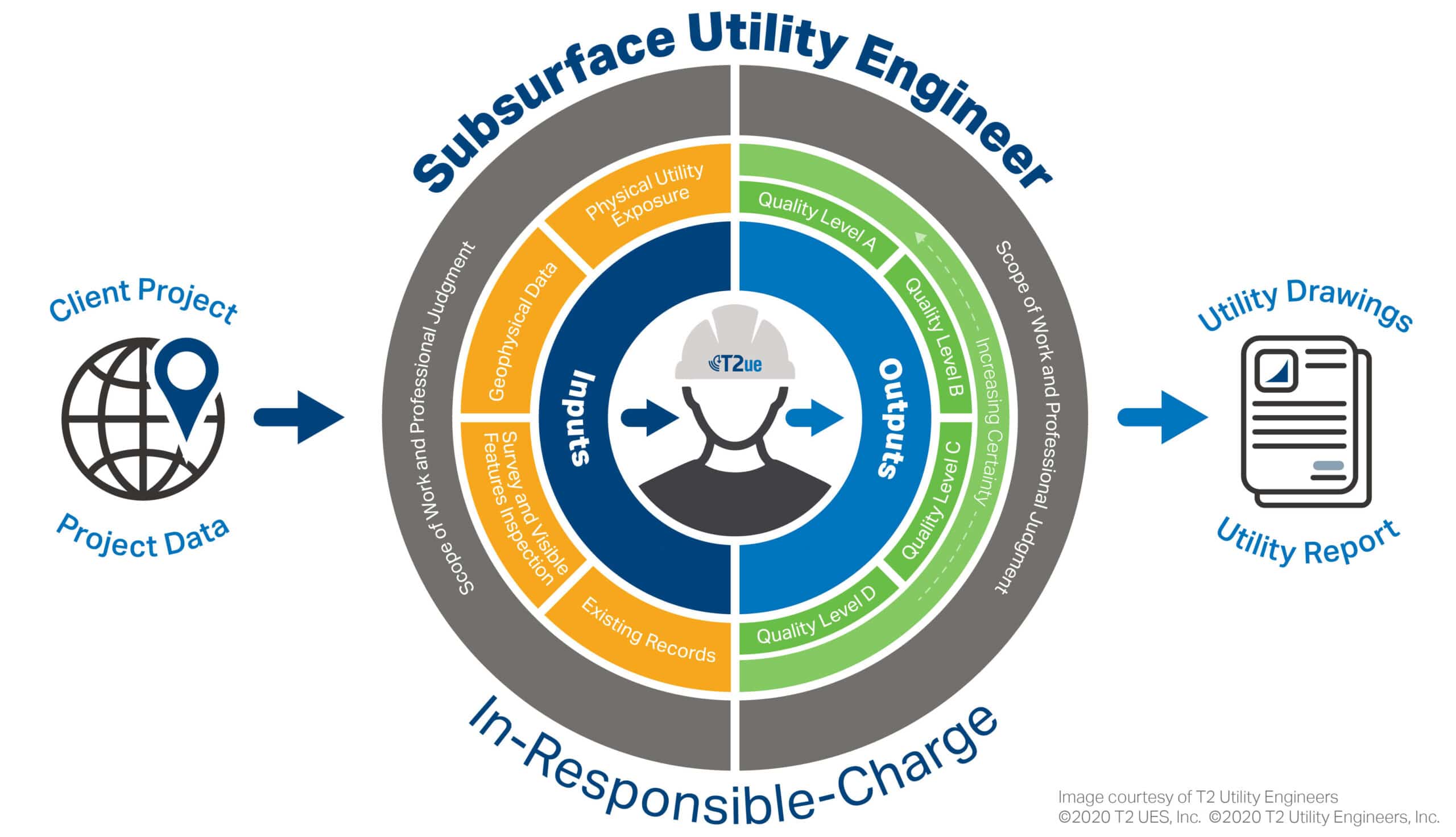What is Utility Engineering? The American Society of Civil Engineering (ASCE) now recognizes Utility Engineering (UE) to be a civil engineering discipline. The importance of UE is illustrated by the commissioning of ASCE’s Utility Engineering and Surveying Institute (UESI) in 2015. The practice combines the elements affecting civil engineering projects of any kind as they relate to utilities (e.g., SUE; utility coordination; utility design, utility relocations and adjustments, etc.) These elements are used to optimize planning, design, and construction activities to control costs and mitigate risks to the project and to the public.
Where the term Utility Engineering used to conjure up the engineers working directly as an employee of a utility company, now Utility Engineering has been broadened to include all of the aspects that utility owners’ engineers and consultants alike who are performing project planning and design must consider regarding the location, existence, and effects to their project of the complete utility network as a “system of systems.”

Wait a minute! That sounds like SUE as defined in ASCE 38!
Yes, it does. That is because the advent of UE as a more comprehensive task discipline that addresses all engineering aspects of utilities affected a change to the definition of SUE. Hence, SUE is going to be defined in the updated ASCE 38 as “the specialty practice of civil engineering’s utility engineering branch that includes the investigation, analysis, judgment, and documentation of existing utility networks. SUE is a type of a utility investigation that includes underground networks and scoped aspects of above-ground networks that results in the assignment of achieved utility quality levels to non-visible utility segments and utility features. “
SUE is now a subset of Utility Engineering.

